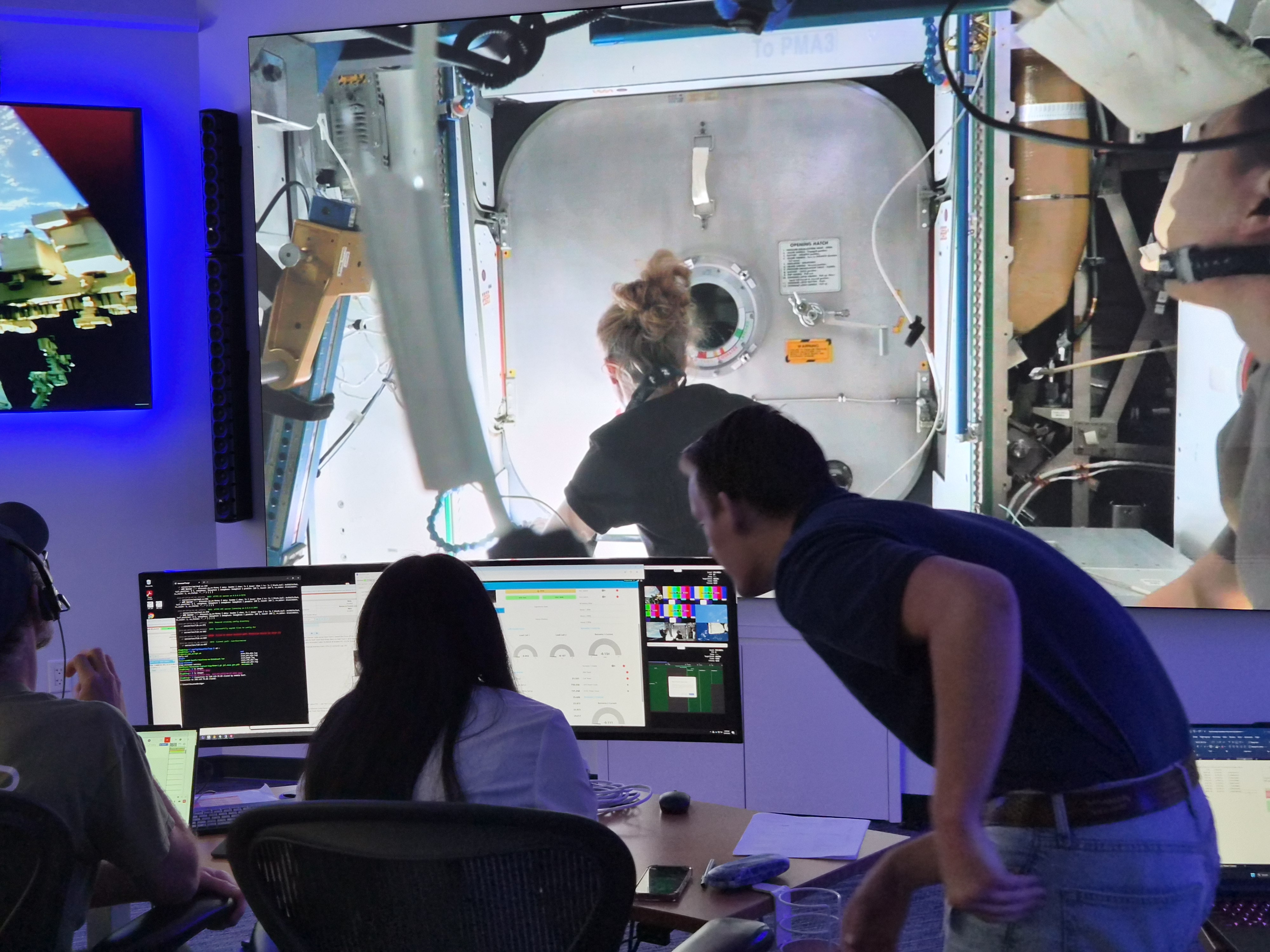Backed by NASA, the U.S. Space Force and private investors, this test validates technology that can supply deep space missions with resources from asteroids and prevent cascading collisions in orbit.
LOS ANGELES, CALIFORNIA / ACCESS Newswire / October 2, 2025 / For the first time, technology designed to capture dangerous space debris and asteroids has been successfully tested aboard the International Space Station (ISS). This marks a pivotal step toward making Earth's orbit safer and tapping into the vast resources of the solar system.
TransAstra Engineers Kieana Fana & Caleb Kracke-Bock Monitor Our Capture Bag Payload as NASA Astronaut Cardman Closes the Hatch to the Voyager Bishop Airlock
The need is urgent. Tens of thousands of debris fragments, some moving up to 50 times faster than a bullet, circle Earth. Even a paint chip at those speeds can destroy a spacecraft. Some think a single major collision might spark a chain reaction of impacts - known as the Kessler Syndrome - that would cripple satellite operations and endanger human missions in low Earth orbit.
Furthermore, as industry expands in space, humanity needs asteroid mining to provide resupplies of water and other materials - not only for human consumption but also for propellant. Asteroids will also provide the metals, shielding, and semiconductors necessary to build structures and spacecraft at a fraction of the cost it would take to send supplies from earth.
California-based aerospace company TransAstra completed a successful demonstration of its Capture Bag technology on the ISS on Oct. 2, 2025. The inflatable structure can envelop and remove orbital debris and capture asteroids to serve as resource hubs for deep space missions.
"With support from the space agency, DoD, and private investors, we're tackling the problem of space debris head-on and gearing up for an asteroid resource capture mission in the very near future," said Joel Sercel, TransAstra's founder and CEO. "The partnerships with NASA and Space Force are a powerful validation of our technology and our team."
The Capture Bag was deployed in Voyager Space's Bishop airlock, where astronauts conducted evaluations simulating orbital conditions. The successful test proved the technology could withstand the extreme environment of space while maintaining integrity - an essential milestone before scaling up to larger versions.
The mission also marked the first in-space use of TransAstra's DAQAstra system. Unlike legacy data acquisition systems still in use across many labs, DAQAstra is more affordable, higher performing, and built from the ground up to be cybersecure.
The Capture Bag was built and flight-qualified through NASA and Space Force SBIR funding. The ISS demonstration was jointly funded by the Center for the Advancement of Science in Space (CASIS) and TransAstra's private investors. Next, the company will build on this momentum with a $2.5 million NASA CCRPP award - matched by private funds - to develop a 10-meter version of the Capture Bag. The scaled-up design will capture larger debris and small asteroids, moving the concept from proof-of-principle to operational readiness.
With these breakthroughs, TransAstra is charting a path toward safer, more sustainable space operations while opening the door to industries supplied by the nearly limitless resources of asteroids - ushering in a future where humanity not only explores space, but thrives there.
Contact Information
Caleb Freeman Sacker
Media Contact
calebsacker@transastra.com
9496164522
SOURCE: Trans Astronautica Corporation
View the original press release on ACCESS Newswire






